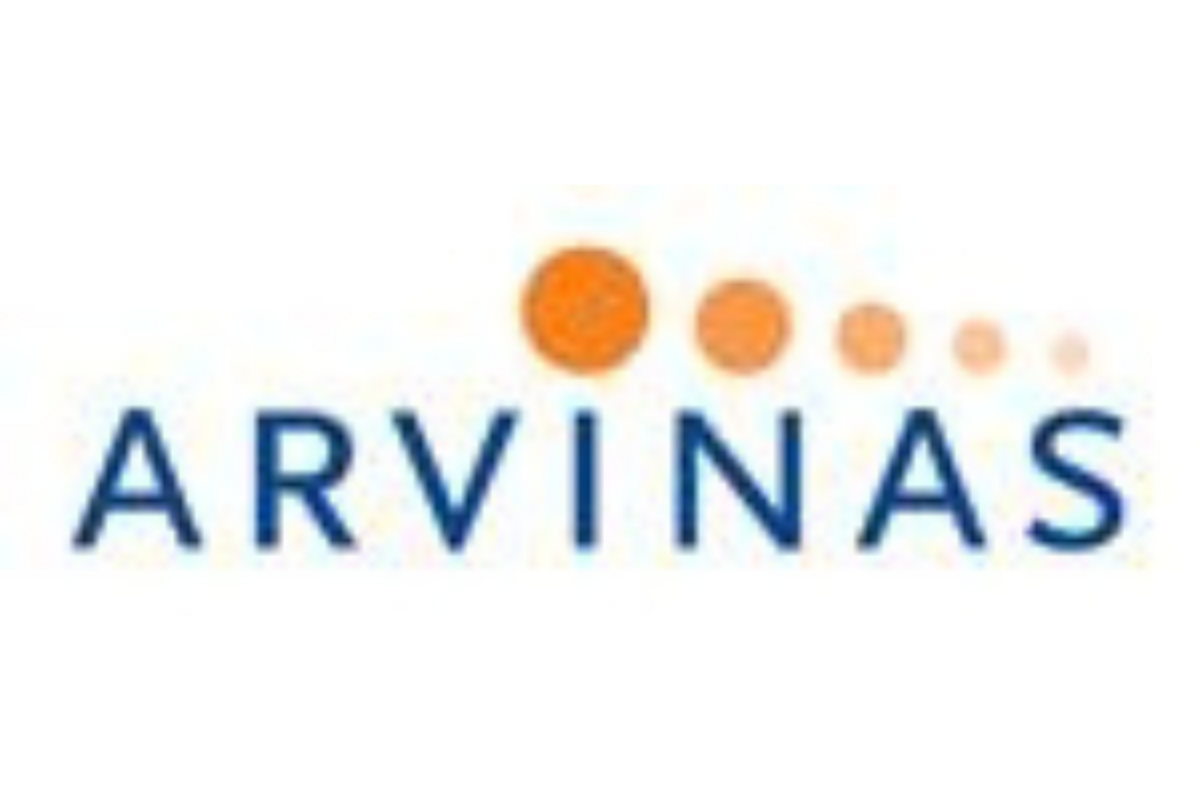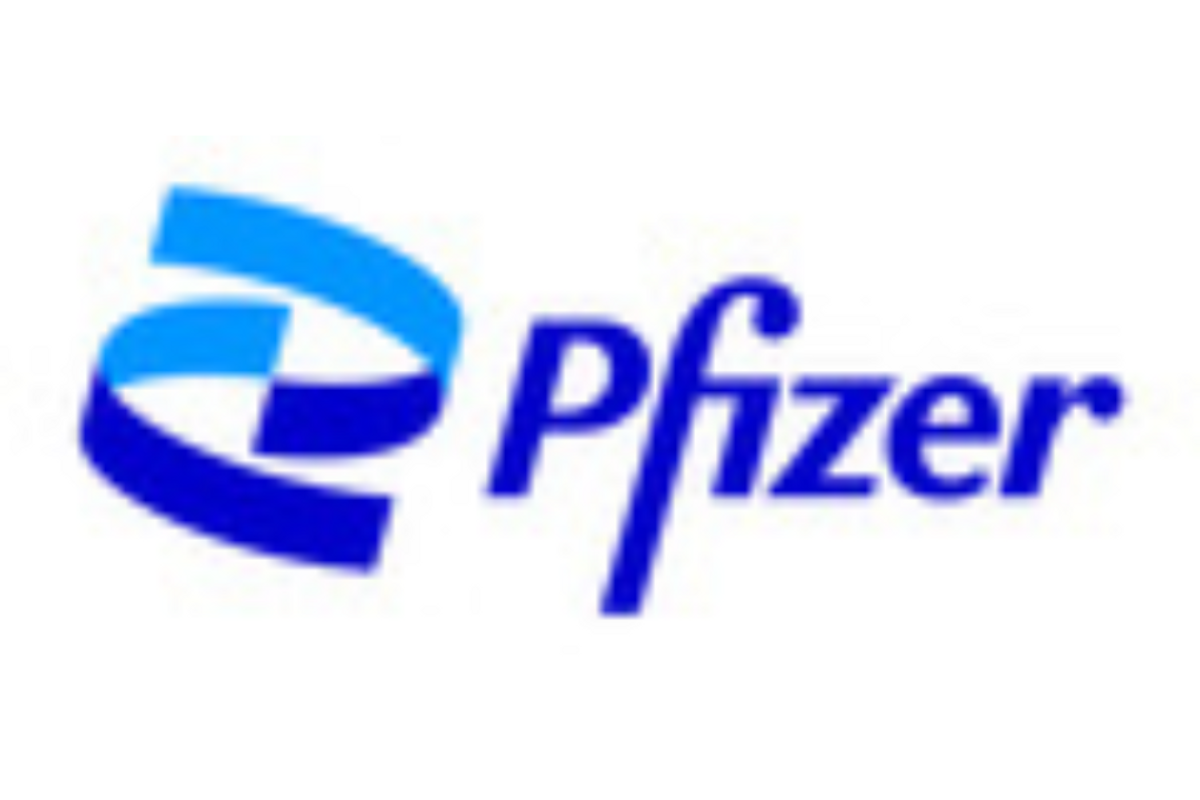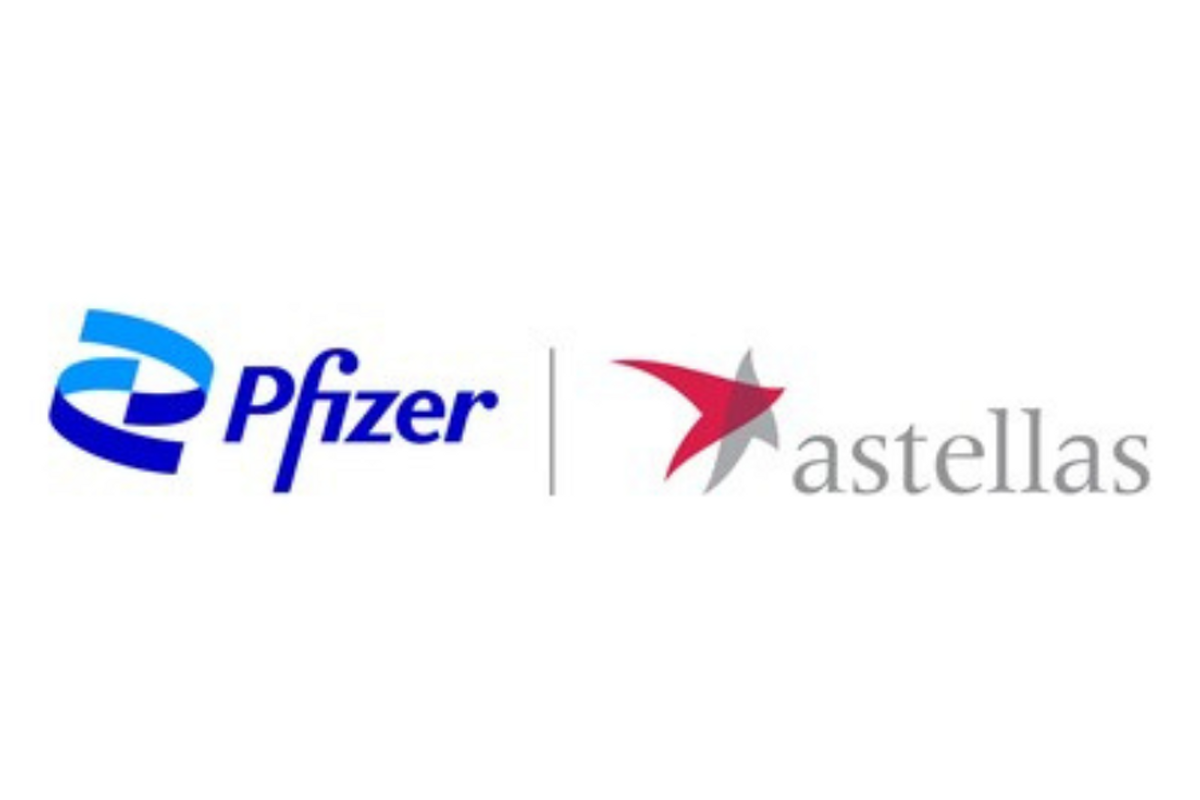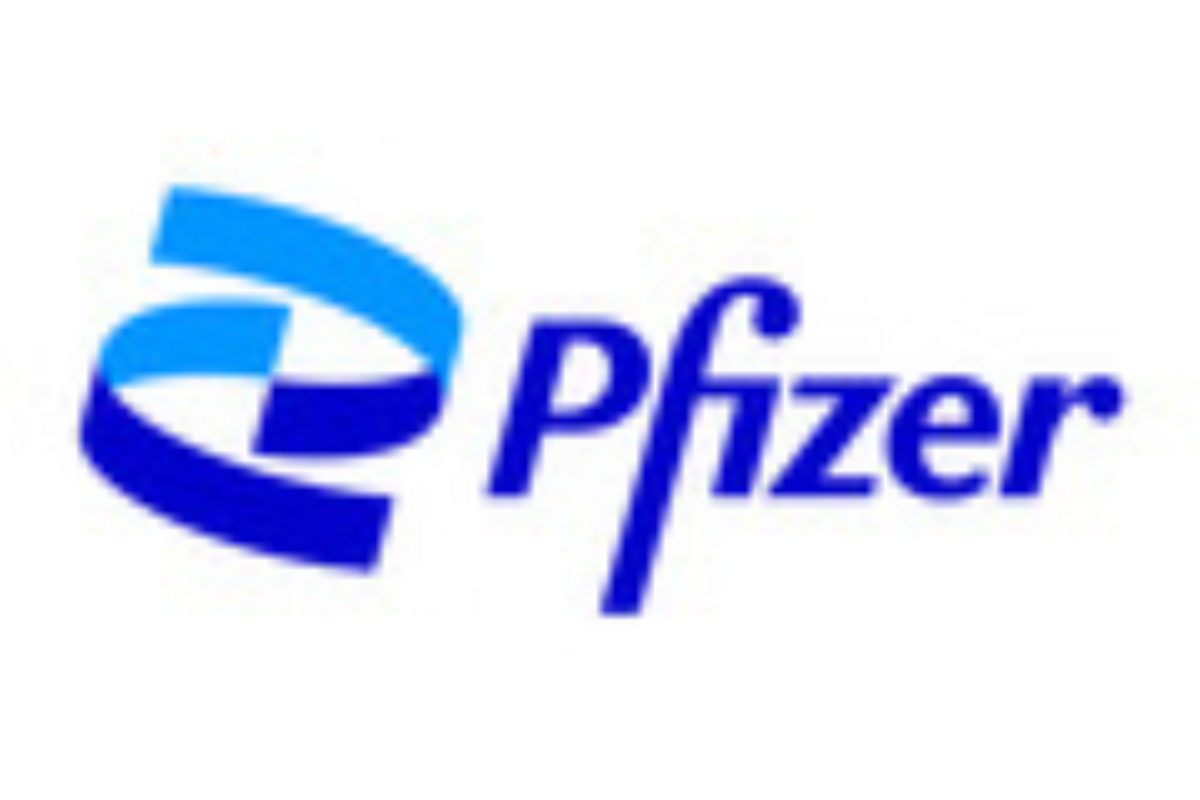- Vaccine efficacy of 81.8% was observed against severe medically attended lower respiratory tract illness due to RSV in infants from birth through the first 90 days of life with high efficacy of 69.4% demonstrated through the first six months of life
- The RSVpreF investigational vaccine was well-tolerated with no safety concerns for both vaccinated individuals and their newborns
- Results met one of the study protocol's pre-specified regulatory success criteria, and Pfizer plans to submit its first regulatory application by end of 2022
- If approved, Pfizer's RSV vaccine candidate could be the first maternal vaccine available to help prevent this common and potentially life-threatening respiratory illness in young infants
- Pfizer currently the only company with an investigational vaccine being prepared for regulatory applications for both infants through maternal immunization and older adults to help protect against RSV
Pfizer Inc. (NYSE: PFE) today announced positive top-line data from the Phase 3 clinical trial (NCT04424316) MATISSE ( MAT ernal I mmunization S tudy for S afety and E fficacy) investigating its bivalent RSV prefusion vaccine candidate, RSVpreF or PF-06928316, when administered to pregnant participants to help protect their infants from RSV disease after birth.
The pre-planned, interim efficacy analysis conducted by an external and independent Data Monitoring Committee (DMC) met the success criterion for one of two primary endpoints. The observed efficacy for severe medically attended lower respiratory tract illness (severe MA-LRTI) was 81.8% (CI: 40.6%, 96.3%) through the first 90 days of life. Substantial efficacy of 69.4% (CI: 44.3%, 84.1%) was demonstrated for infants over the six-month follow-up period.
Although the statistical success criterion was not met for the second primary endpoint, clinically meaningful efficacy was observed for MA-LRTI of 57.1% (CI: 14.7%, 79.8%) in infants from birth through the first 90 days of life. Efficacy for MA-LRTI of 51.3% (CI: 29.4%, 66.8%) was observed over the six-month follow up period.
Pre-planned safety reviews conducted at regular intervals throughout the duration of the study by the DMC also indicate the investigational vaccine is well-tolerated with no safety concerns for both the vaccinated individuals and their newborns.
"We are thrilled by these data as this is the first-ever investigational vaccine shown to help protect newborns against severe RSV-related respiratory illness immediately at birth," said Annaliesa Anderson, Ph.D., Senior Vice President and Chief Scientific Officer, Vaccine Research & Development, Pfizer. "These data reinforce Pfizer's resolve to bring our expertise in the research and development of innovative vaccines to address critical public health needs using new approaches and technologies. We look forward to working with the FDA and other regulatory agencies to bring this vaccine candidate to expectant mothers to help protect their infants against severe RSV during their most vulnerable first six months of life, which has the highest burden of RSV illness in infants. We would like to thank the pregnant women who volunteered for this trial, along with their infants, and all the investigators around the world who participated in the study for their contribution to this landmark research."
At the recommendation of the DMC, and in consultation with the U.S. Food and Drug Administration (FDA), Pfizer has stopped enrollment in the study. Based on these positive results Pfizer plans to submit a Biologics License Application (BLA) to the FDA by the end of 2022 for the vaccine candidate followed by other regulatory authorities in the coming months.
"Every year we see high levels of RSV cases among babies in the U.S. with some regions reporting hospital admission rates higher than normal this year," said Eric A.F. Simões, M.D., Clinical Professor, Pediatrics-Infectious Diseases, University of Colorado School of Medicine and Children's Hospital Colorado, Aurora. "A maternal vaccine with high efficacy that can help protect infants from birth could substantially reduce the burden of severe RSV among newborns through six months of age, and, if approved by regulatory authorities, will likely have a significant impact on disease in the U.S. and globally."
MATISSE is an ongoing randomized, double-blinded, placebo-controlled Phase 3 study designed to evaluate the efficacy, safety, and immunogenicity of RSVpreF against medically attended lower respiratory tract illness (MA-LRTI) and severe MA-LRTI in infants born to healthy women vaccinated during pregnancy. The study enrolled approximately 7,400 pregnant individuals. Maternal participants ≤ 49 years of age were randomized in a 1:1 ratio to receive a single dose of either 120 µg of Pfizer's RSVpreF or placebo during the late second to third trimester of their pregnancy. The trial also assessed safety throughout the study and immunogenicity of the vaccine in pregnant individuals and their infants. Maternal participants were followed for safety through vaccination and for six months after delivery. Infants were followed for at least one year for safety and efficacy, with over half of the infants followed for two years. This was a global study in 18 countries and started in June 2020, so it spanned multiple RSV seasons in both the northern and southern hemisphere.
Pfizer intends to submit these results for peer-review in a scientific journal.
On March 2, 2022, Pfizer announced that its vaccine candidate received Breakthrough Therapy Designation from the FDA for the prevention of RSV-associated lower respiratory tract disease in infants up to six months of age by active immunization of pregnant women. The FDA designation was informed by the results of the Phase 2b proof-of-concept study of RSVpreF (NCT04032093), which evaluated the safety, tolerability and immunogenicity of RSVpreF in vaccinated pregnant women ages 18 through 49 and their infants. This followed the FDA's November 2018 decision to grant Fast Track status to RSVpreF.
Burden of RSV in Infants
RSV is a contagious virus and a common cause of respiratory illness. 1 The virus can affect the lungs and breathing passages of an infected individual and can be potentially life-threatening for young infants, persons with certain chronic medical conditions, and older adults. 2,3,4,5 In the United States alone, approximately 2.1 million outpatient visits and 58,000 hospitalizations due to RSV occur each year among children younger than five years old. 6,7 Worldwide, RSV results in death of approximately 102,000 children annually, with about half of those in infants less than 6 months old and the vast majority in developing countries. 8,9
RSV bronchiolitis is the leading cause of infant hospitalization due to viral respiratory illness, characterized by respiratory distress that can result in death. There is no specific treatment for RSV, only supportive care measures like oxygen and fluids. Currently there is no vaccine to prevent RSV. The only available preventive agent is recommended for use in limited settings in the highest-risk infants as a monthly injection with 5 doses administered during the RSV season, leaving most infants without protection.
About RSVpreF
Pfizer's investigational RSV vaccine candidate builds on foundational basic science discoveries including those made at the National Institutes of Health (NIH), which detailed the crystal structure of prefusion F, a key form of the viral fusion protein (F) that RSV uses to enter human cells. The NIH research showed that antibodies specific to the prefusion form were highly effective at blocking virus infection, suggesting a prefusion F-based vaccine may confer optimal protection against RSV. After this important discovery, Pfizer tested numerous versions of a stabilized prefusion F protein and identified a candidate that elicited a strong anti-viral immune response in pre-clinical evaluations. The bivalent vaccine candidate is composed of equal amounts of recombinant RSV prefusion F from subgroups A and B.
Pfizer is currently the only company with an investigational vaccine being prepared for regulatory applications for both infants through maternal immunization and older adults to help protect against RSV. In August 2022, Pfizer announced positive top-line results of an interim analysis for RENOIR ( R SV vaccine E fficacy study i N O lder adults I mmunized against R SV disease), a Phase 3 clinical trial (NCT05035212) evaluating the efficacy, immunogenicity, and safety of a single dose of RSVpreF, in adults ages 60 years or older. This study was initiated in September 2021 and remains ongoing. RENOIR and MATISSE assessed severe LRTI differently among the distinct study populations of older adults and infants, respectively.
In March 2022, Pfizer announced RSVpreF received Breakthrough Therapy Designation from the U.S. Food and Drug Administration (FDA) for the prevention of RSV-associated lower respiratory tract disease caused by RSV in individuals 60 years of age or older. The FDA designation was primarily informed by the positive results of a proof-of-concept, Phase 2a study evaluating the safety, immunogenicity, and efficacy of a single dose of 120 µg RSVpreF in a human viral challenge model in healthy adults 18 to 50 years of age.
About Pfizer: Breakthroughs That Change Patients' Lives
At Pfizer, we apply science and our global resources to bring therapies to people that extend and significantly improve their lives. We strive to set the standard for quality, safety and value in the discovery, development and manufacture of health care products, including innovative medicines and vaccines. Every day, Pfizer colleagues work across developed and emerging markets to advance wellness, prevention, treatments and cures that challenge the most feared diseases of our time. Consistent with our responsibility as one of the world's premier innovative biopharmaceutical companies, we collaborate with health care providers, governments and local communities to support and expand access to reliable, affordable health care around the world. For more than 170 years, we have worked to make a difference for all who rely on us. We routinely post information that may be important to investors on our website at www.Pfizer.com . In addition, to learn more, please visit us on www.Pfizer.com and follow us on Twitter at @Pfizer and @Pfizer News , LinkedIn , YouTube and like us on Facebook at Facebook.com/Pfizer .
DISCLOSURE NOTICE:
The information contained in this release is as of November 1, 2022. Pfizer assumes no obligation to update forward-looking statements contained in this release as the result of new information or future events or developments.
This release contains forward-looking information about Pfizer's respiratory syncytial virus vaccine candidate (RSVpreF), including its potential benefits and planned regulatory submissions , that involves substantial risks and uncertainties that could cause actual results to differ materially from those expressed or implied by such statements. Risks and uncertainties include, among other things, the uncertainties inherent in research and development, including the ability to meet anticipated clinical endpoints, commencement and/or completion dates for our clinical trials, regulatory submission dates, regulatory approval dates and/or launch dates, as well as the possibility of unfavorable new clinical data and further analyses of existing clinical data; risks associated with interim data; including the risk that final results from the Phase 3 trial could differ from the interim data discussed in this release; the risk that clinical trial data are subject to differing interpretations and assessments by regulatory authorities; whether regulatory authorities will be satisfied with the design of and results from our clinical studies; whether and when biologic license applications may be filed in any jurisdictions for RSVpreF for any potential indications (including the planned BLA submission in the U.S.) ; whether and when any such applications may be approved by regulatory authorities, which will depend on myriad factors, including making a determination as to whether the product's benefits outweigh its known risks and determination of the product's efficacy and, if approved, whether RSVpreF will be commercially successful; decisions by regulatory authorities impacting labeling, manufacturing processes, safety and/or other matters that could affect the availability or commercial potential of RSVpreF; uncertainties regarding the ability to obtain recommendations from vaccine advisory or technical committees and other public health authorities regarding RSVpreF and uncertainties regarding the commercial impact of any such recommendations; uncertainties regarding the impact of COVID-19 on our business, operations and financial results; and competitive developments.
A further description of risks and uncertainties can be found in Pfizer's Annual Report on Form 10-K for the fiscal year ended December 31, 2021 and in its subsequent reports on Form 10-Q, including in the sections thereof captioned "Risk Factors" and "Forward-Looking Information and Factors That May Affect Future Results", as well as in its subsequent reports on Form 8-K, all of which are filed with the U.S. Securities and Exchange Commission and available at www.sec.gov and www.pfizer.com .
[Category: Vaccines]
___________________________
1 Centers for Disease Control and Prevention. Respiratory Syncytial Virus Infection (RSV). https://www.cdc.gov/rsv/index.html . Updated December 18, 2020.
2 Centers for Disease Control and Prevention. Disease or Condition of the Week - Respiratory Syncytial Virus Infection (RSV). https://www.cdc.gov/dotw/rsv/index.html . Updated September 14, 2021.
3 Centers for Disease Control and Prevention. RSV Transmission. https://www.cdc.gov/rsv/about/transmission.html . Updated December 18, 2020.
4 Centers for Disease Control and Prevention. Respiratory Syncytial Virus Infection (RSV) – Older Adults are at High Risk for Severe RSV Infection Fact Sheet. https://www.cdc.gov/rsv/factsheet-older-adults.pdf .
5 Centers for Disease Control and Prevention. RSV in Infants and Young Children. https://www.cdc.gov/rsv/high-risk/infants-young-children.html . Updated December 18, 2020.
6 Hall CB, et al. The Burden of Respiratory Syncytial Virus Infection in Young Children. N Engl J Med. 2009; 360:588-598. DOI: 10.1056/NEJMoa0804877
7 Rha B, et al. Respiratory Syncytial Virus-Associated Hospitalizations Among Young Children: 2015-2016 Pediatrics. 2020 Jul;146(1):e20193611. doi: 10.1542/peds.2019-3611. Epub 2020 Jun 16.
8 Li et al. Global, regional, and national disease burden estimates of acute lower respiratory infections due to respiratory syncytial virus in children younger than 5 years in 2019: a systematic analysis. Lancet 2022; 399: 2047-64.
9 Scheltema NM, Gentile A, Lucion F, et al. Global respiratory syncytial virus-associated mortality in young children (RSV GOLD): a retrospective case series [published correction appears in Lancet Glob Health. 2017 Dec;5(12 ):e1190]. Lancet Glob Health. 2017;5(10):e984-e991. doi:10.1016/S2214-109X(17)30344-3.
View source version on businesswire.com: https://www.businesswire.com/news/home/20221101005117/en/
Media Contact:
PfizerMediaRelations@Pfizer.com
+1 (212) 733-1226
Investor Contact:
IR@Pfizer.com
+1 (212) 733-4848







